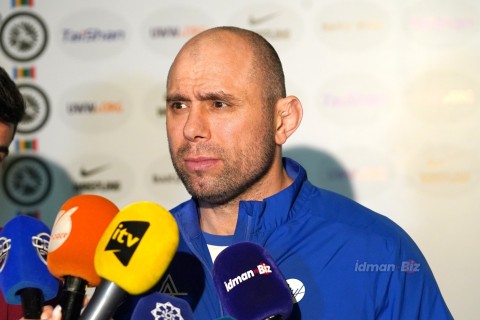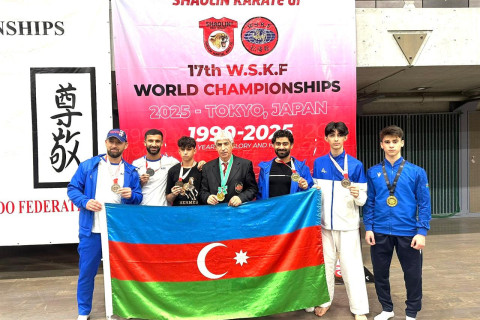When Slavko Tekic talks about judo, he does so with the calm conviction of someone who has seen the sport transform across nations, generations, and fighting styles. Since two years he is in the team of Richard Trautmann as senior coach behind Azerbaijan’s national judo success, Tekic finds himself at the center of a remarkable sporting story, one that has carried the team to the podium at the highest level, including two Olympic gold medals.
At the European Open in Prague, where the Azerbaijani team is competing, Tekic reflects on what has fueled this success. For him, it comes down to a fusion of tradition, innovation, and above all, trust.
A style of their own
Azerbaijan’s fighters are not bound to one rigid approach. Instead, Tekic explains, they have cultivated a versatile style that combines classical techniques with a willingness to adapt.
“In close combat, it’s about really tight fighting and being skilled with deep techniques, like kata-guruma or ippon-seoi-nage from the knee,” Tekic says. “It’s typical that they fight in a classic manner, which wasn’t really Azerbaijani before. But now we’ve built it into our system.”
“What we trying to achieve is a style that balances raw power with technical precision, allowing judoka to surprise opponents who might expect a more static athlete, but we want to be onorthodox but with a certain own style we have developed.
A coaching team with many strengths
Behind the athletes stands a group of coaches, each bringing their own specialities. This diversity of expertise, Tekic believes, is crucial.
“Each coach has their own strength. Some are really good with cross-grips, others excel with classic throws, or with tactical preparation before matches,” he says. “Each one’s strengths contribute to the team’s overall success.”
This collective approach, where no single coach dominates, creates a rich training environment in which athletes can learn from different perspectives and develop into well-rounded fighters.
Trust and results
In sports, results are the ultimate measure of trust. For Azerbaijan, those results speak for themselves: two Olympic champions in recent years. Tekic attributes this not only to the athletes’ dedication but also to the unity within the coaching team and the support from leadership.
“If Richard Trautmann (the head coach) drafts a competition plan for the year, once it’s on the table, our general is fine with it,” Tekic explains. “That’s what we’ve done over the last two years, and the results show it’s been right and good. There’s trust, and we’ll keep moving forward.”
Trust has given the coaches freedom to innovate and prepare long-term, without being second-guessed at every turn. And when that freedom translates into Olympic gold, it reinforces the system for the future. Of course is it now just Tekic, the whole team with experts all have a network and their skills. For instance Amina Abdellatif (FRA) is working in Azerbaijan for quite some quite. “It is lovely to have her in the team, she is so good and dedicated and we have more of those foreign experts to improve our athletes.”
Looking ahead
The Paris Olympics may already be behind them with two gold medals, but for Tekic and his team, the journey is far from over. The next Olympic cycle looms, and with it, fresh ambitions. Tekic insists that the fire within the athletes has only grown stronger.
“Each one wants to be better. Each one has a chance,” he says. “And there’s no limit to what they can achieve if they keep pushing.”
With investment in the sport continuing, and with Azerbaijan now firmly established as a judo powerhouse, the challenge is no longer to prove that success is possible, but to sustain it.
A model of growth
The story of Azerbaijan’s rise in judo is more than a sporting tale. It’s a case study in how a nation can develop talent, empower coaches, and trust a long-term vision. Tekic, with his steady presence and wealth of experience, embodies that philosophy. Living the life in Azerbaijan is a key difference maker, Slavko is always there for the team.
From the mats in Baku to the arenas of Europe, he has helped shape a system that thrives on collaboration and adaptability. And as he looks to the future, Tekic believes the team is only just beginning to show what it can do.
“Our success has come because we’ve believed in the athletes and in each other,” he reflects. “That’s the way forward. The medals are proof, but the real victory is the trust we’ve built.”
Zaki Feyzullayev












